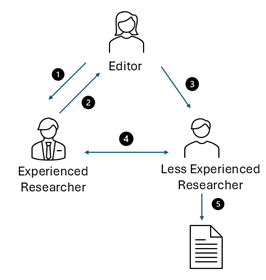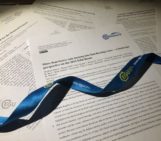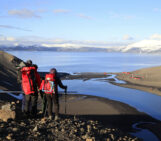
Any journal editor will recognize this challenge: a new manuscript arrives for review. It’s great, and you’re enthusiastic about getting it into the system, but suddenly, there’s a problem. All the suggested reviewers are unavailable! What do you do now? Across publishing fields, it is becoming increasingly difficult to find suitable reviewers for scientific manuscripts. As the number of submissions grows, publishers struggle to find qualified researchers willing or able to dedicate their time to evaluate these studies. This issue is particularly pronounced for experienced researchers, who are often overburdened and less likely to accept review requests compared to their less experienced colleagues.
However, there is an untapped source of qualified and motivated reviewers: Early Career Scientists (ECS) who have not yet had the chance to engage in the publishing process beyond being authors. ECS are knowledgeable in their specific fields of expertise, often have time to dedicate to reviewing, and are eager to gain experience. With more than half of its membership consisting of early-career researchers, EGU has been taking measures to include this community in the review process of its 19 open-access journals.
Besides peer review training, EGU, together with its publisher Copernicus Publications, is now offering a co-review (tandem review) scheme. It works like this: upon nomination as a reviewer, the nominee can suggest doing the review in partnership with a less experienced colleague, such as a PhD candidate or postdoctoral researcher with relevant expertise. If the editor approves this proposal, the ECS becomes the main reviewer of the manuscript, not only preparing the review report but also being responsible for its submission after completion. However, this does not mean the ECS reviews the manuscript alone! On the contrary, the more experienced researcher agrees to provide guidance and mentorship throughout the process—on evaluation criteria, ethical considerations, and report writing. During the review process, the review partnership is encouraged to actively discuss the work, with each participant independently deciding whether to remain anonymous.

Figure 1: Simplified diagram summarizing the main steps of the co-review scheme: 1: Editor nominates experienced researcher to review a manuscript. 2: Experienced researcher proposes a tandem review with a less experienced colleague. 3: Editor approves the tandem team and nominates the latter. 4: Upon acceptance of the nomination, the less experienced researcher collaborates with the experienced colleague on the review of the manuscript. 5: After review completion, the less experienced researcher is responsible for uploading the peer review report produced by the tandem.
This new co-review scheme has two major benefits. Firstly, it helps editors struggling to find qualified reviewers by identifying potential new candidates. It provides invaluable peer-to-peer training for Early Career Researchers (ECRs) and first-time reviewers, equipping them with skills and confidence in the review process. Experienced scientists also benefit by strengthening their mentorship abilities while offering valuable guidance to mentees. This mentorship extends beyond manuscript evaluation to include drafting coherent, constructive, and clear review reports. Additionally, the scheme helps reduce the excessive number of review invitations sent to established researchers.
Another feature of this approach is formal recognition for ECS contributions. While ECS often help supervisors with peer reviews, their work is not always acknowledged, leaving them without credit for their efforts. Through the co-review scheme, ECS are formally invited into the collaborative review process and can receive recognition on platforms such as ORCID. This participation not only boosts professional development but also instills confidence as ECS contribute to ensuring scientific quality.
At present, the co-review scheme is available for the following EGU journals: Atmospheric Chemistry and Physics (ACP), Earth System Dynamics (ESD), Geoscience Communication (GC), Solid Earth (SE), and The Cryosphere (TC). More journals are expected to adopt the scheme soon. If you are an ECS looking to gain reviewing experience, let your supervisor or senior colleagues know about this feature and ask them to nominate you next time they are invited to review for an EGU journal. You should also keep an eye out for the next EGU Peer Review Training, scheduled for September/October 2025.
EGU remains committed to supporting ECS as they navigate different stages of academic publishing, guiding them from readers to authors, to co-reviewers, peer-review trainees, and eventually independent reviewers. There are also optional volunteer roles that anyone can consider taking on to learn more, such as EGUsphere moderator and eventually editor. By adding this co-review initiative to our Open Access public peer review process, EGU is excited to provide an additional opportunity for our ECS community to gain hands-on experience with the peer review process, working together with more experienced reviewers, acquiring new skills and increasing their representation in scholarly publishing.



